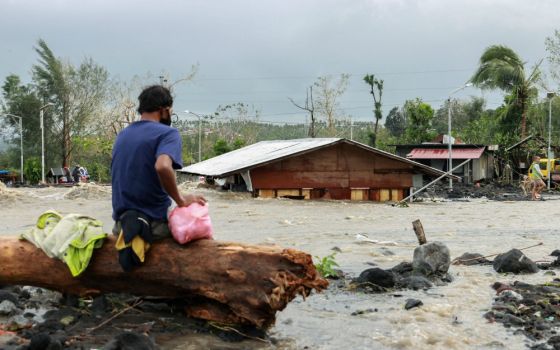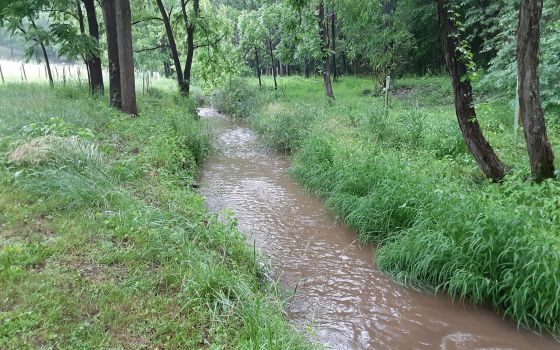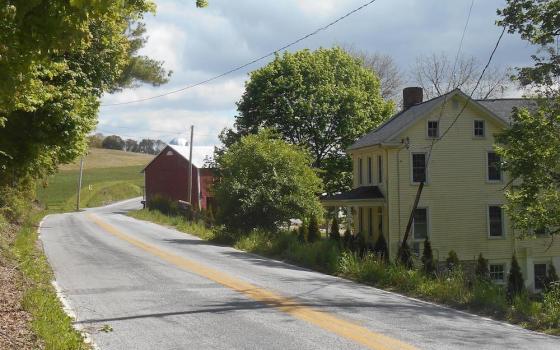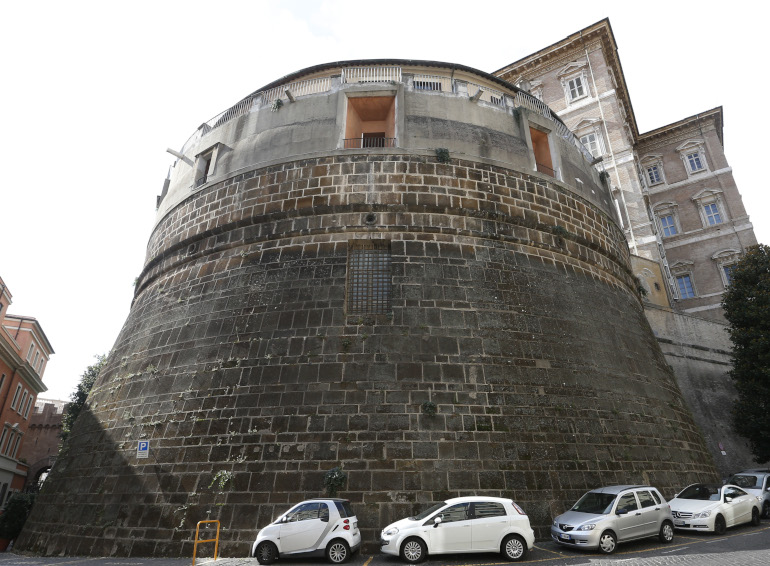
The tower of the Institute for the Works of Religion, often referred to as the Vatican bank, is pictured Oct. 2, 2019. (CNS photo/Paul Haring)
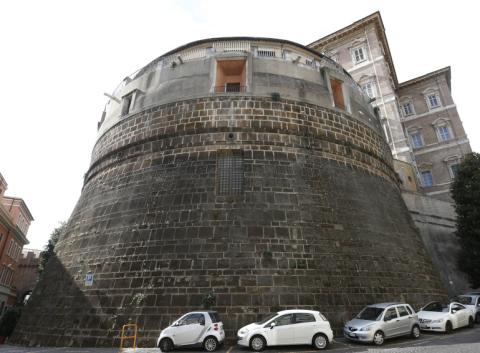
The tower of the Institute for the Works of Religion, often referred to as the Vatican bank, is pictured Oct. 2, 2019. (CNS photo/Paul Haring)
The head of the Institute for the Works of Religion, commonly known as the Vatican bank, has verified that the institution does not maintain investments in the fossil fuel sector.
In a May 21 statement to NCR, the director general of the bank said he wished to "confirm" an earlier statement from one of the institution's former employees that, like other European banking institutions, it eschews investments in public equities in favor of safer treasury instruments.
Gian Franco Mammì, who was worked at the bank for 28 years and was appointed to his current role by Pope Francis five years ago, also said the institution uses the pontiff's 2015 environmental encyclical, "Laudato Si', on Care for Our Common Home," as a guidepost in its work.
"In addition, I confirm the maximum attention of the IOR and its respect for the principles set forth in 'Laudato Si',' whether in the general process of investing or in specific sectors like the fossil fuel sector, but not only there," Mammì said, using the bank's Italian acronym.
The question of whether the institute was invested in the fossil fuel sector has been raised by environmental activists, most recently by writer and activist Bill McKibben.
Mammì was responding to a May 17 NCR report in which Max Hohenberg, a former communications official at the bank, said that during his 2013-15 employment at the institution it had not been invested in the fossil fuel sector.
Hohenberg had said the lack of such exposure was primarily due to two reasons: that the institute does not finance corporations as other banks do, and does not invest in single stocks or bonds but government securities.
Advertisement
"De facto, the exposure was then zero," said Hohenberg. "But it's also fair to say ... it was not zero by choice but it was zero because of the way the IOR runs its activity."
Mammì did not say in his response to NCR if his institution had ever been invested in the fossil fuel sector in the past.
The institute's main purpose, outlined in new statutes approved by Francis in August 2019, is to provide a banking structure for legal entities recognized by the Vatican City State. These entities often include religious orders based in countries with unstable economic systems, which would otherwise have few options for reliable banking services.
The institute releases an annual report each year. It usually identifies the institute's overall profit and loss figures, but not specifics of its investments.
The 2018 report, the last available, showed total assets of about 5 billion euro ($5.4 billion) and a profit of 17.5 million euro ($18.9 million) that year, meaning the institution has a budget about half that of the state of Rhode Island.
Mammì said he expected the 2019 report to be released "in the coming weeks."
[Joshua J. McElwee is NCR Vatican correspondent. His email address is jmcelwee@ncronline.org. Follow him on Twitter @joshjmac.]




